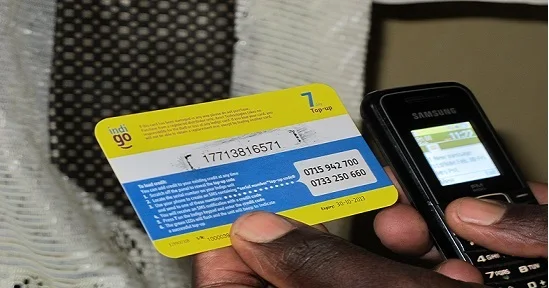Mobile technology and ICT development in Namibian rural areas is the key for real empowerment. As the world advocates for gender par...
As the world advocates for gender parity and poverty eradication, information communication technology (ICT) is a necessity that enabling Namibian rural communities especially the largely affected people and majority woman who operating small scale business in order address socio-economic disparities. The Mobile Technology has sprung many sectors from entertainment,business entrepreneurship and education.
The studies reported by IEEE xplore indicates that Namibian students have positive perceptions on the adoption of mobile learning. The majority of learners can access the internet through mobile phones. Learners are ready to use mobile devices for academic purposes, download educational materials, use mobile devices as calculators and search for definitions of words. Mobile device usage will increase learners' engagement and group discussions like through Whatsapp. Mobile devices usage can facilitate speedy learning, enhance learning and practice flexible learning.
Mobile Technology and indeed ICT is an important portal of improving socioeconomic standard of business entrepreneurs in far remote areas. Nowadays, mobile-internet has became an integral part of livelihood and basic necessity like water and electricity. Penina Heita she thank the mobile technology innovation that establish a direct link to her regular customers and allow her to do business just from the comfort of her own house. Usually she would travel about 25 Km on foot from her far-flung village to reach Oshakati town in order to sell agricultural and traditional products like pearl millet include wild fruits and home brew at an open market. "today, instead of solely relying on an open market trying to lure clients, or sitting at the stall waiting on clients in dismay. Today, I contact potential clients via my mobile phone and even take orders before I pack my stock," she said.
Today, instead of solely relying on an open market stall to lure clients, the 45 years old is maximizing on mobile technology to expand her clientele. "Before, I would be sitting at the stall waiting on clients in dismay. Today, I contact potential clients via my mobile phone and even take orders before I pack my stock," she said.
Since 2005, the smartphone has been instrumental in Heita's business growth, making it easier for her to communicate with clients and promote products. "I even have WhatsApp. I take pictures of my products and share products on offer with clients. This saves me time and further helps me maintain business contacts," she said. Cellphone banking, according to her, has also saved time and enhanced her financial management skills.
As business and earnings tripled over the years, with a monthly earning averaging 5,000 Namibian dollars ( 419 U.S. dollars), Heita has been able to independently take care her of her family. "In any ordinary case, as for many other village women, I would probably be struggling to make ends meet or be dependent on a man if it were not for my business and technology skills," she said.
She is not alone. Nankelo Shilongo, 35, is now promoting pearl millet on popular Facebook groups and asking for referrals via her mobile phone. "This has had a snowball effect on my business growth, all attributed to ICT," said Shilongo, also from Oshana region.
Shilongo also seeks new information online. "I have been able to support my household. ICT has certainly been aiding towards my empowerment as a women, and opposed to solely depending on my male partner," she added. The rural women have since created a WhatsApp group via which they engage on the challenges they face with other women. "We are in the same trade and face similar challenges. Thus it's important to caucus in WhatsApp inboxes," said Heita.
The group also enables the women to track goods and share tips on how to access advanced markets. The younger generation is also helping the women like Heita who often have little access to social media platforms. Willem Ashipala, a 23-year-old son of Heita, said he posts his mother's products on his Facebook page. "Recently I posted that she is selling chickens. This make business easier as she does not have to carry stock in anticipation of clients, and thus reduces her burden," he said.
The engagement offered by ICT venture is unique with an element of sustainability and empowerment that lends itself to address gender disparities and social inequalities, Christine Hoebes, deputy minister of international relations and cooperation said Thursday. "Plans are underway to establish a mentorship program for all women in efforts to address social inequalities women faces," said Hoebes. Netumbo Nandi-Ndaitwah, Deputy Prime Minister of Namibia, last Thursday said that Namibia should strive and address social inequalities women faces. "The theme for this year is encouraging us to move forward with commitment and determination to ensure that women empowerment and gender equality is realized," said Ndaitwah.
The engagement offered by ICT venture is unique with an element of sustainability and empowerment that lends itself to address gender disparities and social inequalities, Christine Hoebes, deputy minister of international relations and cooperation said Thursday. "Plans are underway to establish a mentorship program for all women in efforts to address social inequalities women faces," said Hoebes. Netumbo Nandi-Ndaitwah, Deputy Prime Minister of Namibia, last Thursday said that Namibia should strive and address social inequalities women faces. "The theme for this year is encouraging us to move forward with commitment and determination to ensure that women empowerment and gender equality is realized," said Ndaitwah.

.webp)




